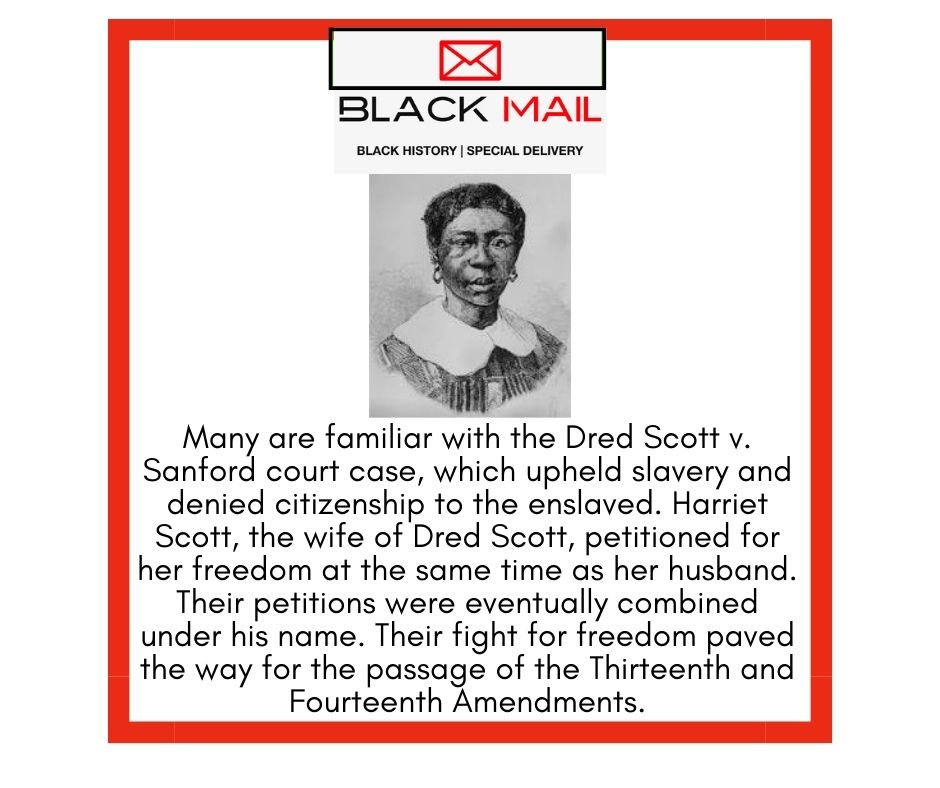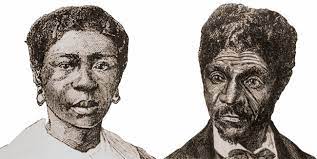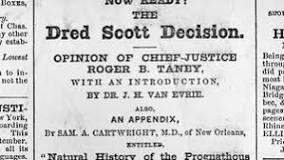Welcome to Black Mail, where we bring you Black History—Special Delivery!
Harriet Robinson Scott, born around 1815, played a significant role in the fight against slavery in the United States. Born enslaved in Virginia, she later married Dred Scott, and together, they embarked on a landmark legal battle to obtain freedom. Harriet was enslaved initially to Major Lawrence Taliaferro, while Dred was enslaved to Dr. John Emerson. Both Major Taliaferro and Dr. Emerson were stationed at Fort Snelling.
Harriet’s life intersected with Dred Scott’s when they both lived at Fort Snelling. At this U.S. military outpost, slavery was technically illegal due to its location north of the Missouri Compromise line. Despite this, many officers stationed there, including Dr. John Emerson, held enslaved individuals.
Harriet and Dred fell in love and made plans to marry. Their union was sanctioned by Major Lawrence Taliaferro, who performed their wedding ceremony. In their quest for freedom, Harriet and Dred took legal action. In 1846, they separately filed petitions for their release in the St. Louis Circuit Court, arguing that their residency in free territory should entitle them to emancipation. Harriet’s petition was initially a separate legal action from Dred’s.
A series of legal challenges ensued, culminating in the landmark Supreme Court case of Dred Scott v. Sandford in 1857. At that time, their initial separate petitions were eventually combined and put under Dred’s name by the court.
The Supreme Court’s ruling upheld their enslavement and denied the Scotts their freedom. The order also declared that enslaved individuals were not entitled to citizenship rights. Despite the court ruling, the Scotts were freed by their owners in 1857.
Following years of activism and social change, the Thirteenth Amendment to the United States Constitution was passed in 1865, which abolished slavery in the United States. Passage of the Fourteenth Amendment then occurred in 1868, granting citizenship to all individuals born or naturalized in the United States. This recognition of citizenship rights was a crucial step toward achieving equality for African Americans in the United States.
Dred Scott died less than a year after the Supreme Court’s decision, on September 17, 1858. Harriet Robinson Scott outlived her husband by nearly twenty years and continued to be an advocate for equality and freedom.
Another installment of melanated mail has been delivered. Ponder, reflect, and pass it on.




